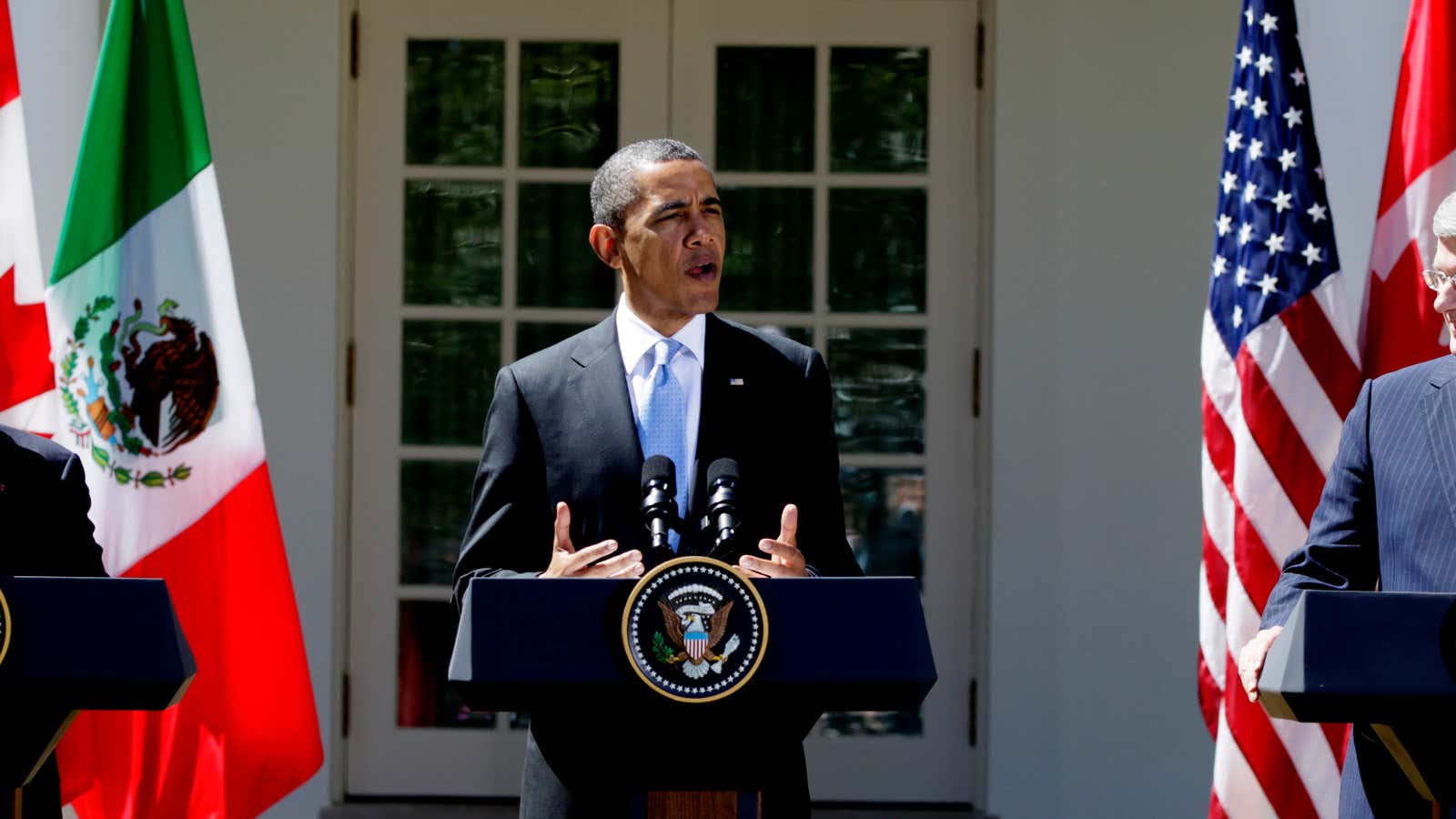What if the answer to America’s economic problems isn’t competing with China on its own, but joining up with its nearest neighbors to the north and south, Canada and Mexico, to create a new super-sized market?
Somewhere, a million American conspiracy theorists are saying “I knew it!” In the years after the North American Free Trade Agreement of 1994, a fervent community became convinced of a modern effort to politically unify them in a scheme to replace American sovereignty with socialism, complete with a currency, the Amero. (Meanwhile, in Canada it is the left that generally opposes integration plans).
While progression beyond NAFTA isn’t on the political agenda in either country, some economists and politicians in Mexico, Canada and the US would like to give it a try on a minor scale: Why not build on that framework to create the rules and infrastructure for a shared market?
The latest proposal is from Robert Pastor, a former US national security advisor who has written about North American economic integration for over a decade. This month, he wrote a paper for the Council on Foreign Relations describing a common market—without a common currency or political unification—that could bring as much as $400 billion in economic benefits to all three countries from increased trade and competition. (He doesn’t say over how long that $400 billion would be spread, though. In 2010, total merchandise trade between the three NAFTA countries was worth just short of $1 trillion.)
The prima facie reasoning here is obvious: Besides the lack of geographic barriers in North America and the already-large trade between the nations, including a deeply integrated supply chain, two of the countries already share a common language, and roughly 6.1 million Mexican citizens are already working in the United States without documents. Formally recognizing these existing economic relationships and building on them could lower the cost of doing business across borders. Such an agreement would make projects like they Keystone pipeline far easier to approve, and help break up Mexico’s telecom monopoly.
The obvious question is “Why now?” NAFTA remains politically controversial, and with the European crisis, supranational projects on this scale are probably at their nadir of popularity. Achieving the kind of trade rule, anti-trust and regulatory harmonization that it would take to create a common market, not to mention energy, transit and all-important immigration agreements, woud be a wildly heavy, multi-year political lift.
But the argument that Pastor makes is fairly specific: The agenda from Washington is focused on competing with China and the European Union in international markets by negotiating complex, multi-year trade deals like the Trans-Pacific Partnership, a European free trade deal, and potentially a global services trade deal. Those initiatives are important, but they wouldn’t have nearly as big an impact as bringing together Mexico, the US and Canada more seamlessly to form a direct competitor with other economic powers. If that’s going to be the US agenda, why not just cut to the chase?
